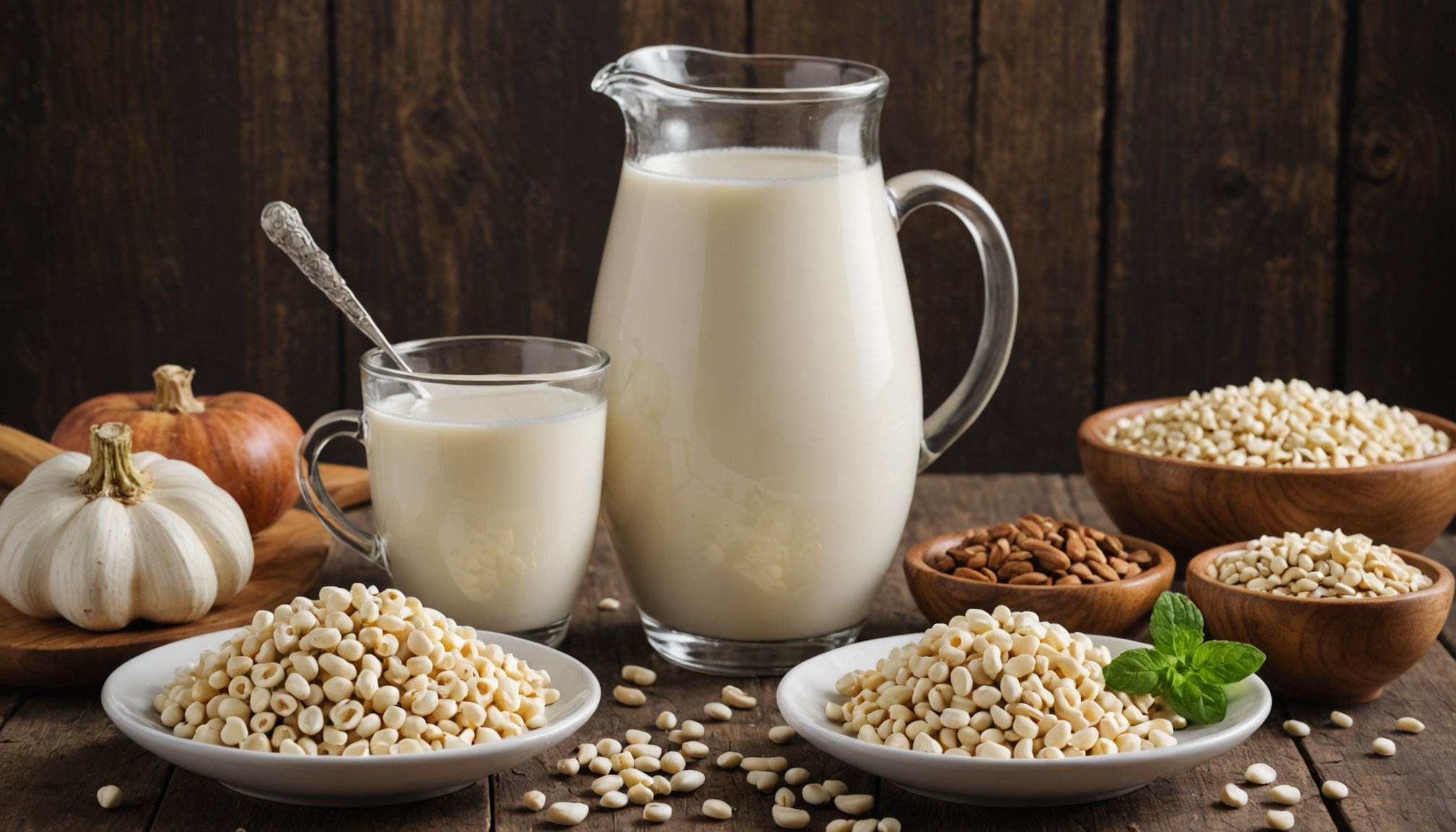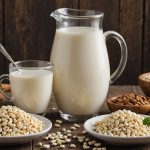Overview of Calcium and Its Importance
In maintaining bone health, calcium plays a pivotal role as it strengthens bones and teeth. This essential mineral provides structure and facilitates vital biological functions. During periods of low calcium intake, the body extracts the required level from bones, weakening them over time, an inevitably counter-productive cycle if not managed through diet or supplements.
Importance for Menopausal Women
For menopausal women, the risk of osteoporosis substantially increases due to decreased estrogen levels, which can accelerate the loss of bone density. Enhanced vigilance regarding calcium intake is crucial during this stage of life. Osteoporosis frequently progresses silently, with bones becoming fragile enough to break easily. This emphasizes the need for proactive calcium management to mitigate such issues.
Also to read : Top Natural Remedies for Brightening Dark Under-Eye Circles: Discover the Best Ingredients!
Daily Calcium Requirements
The daily calcium requirement for menopausal women generally ranges between 1,000 to 1,200 milligrams. Meeting these levels through fortified foods and supplements can support sustained bone health. It’s vital to consult healthcare professionals for tailored advice, as excess calcium, particularly from supplements, can lead to health complications like kidney stones. Thus, balance and informed decisions become key.
Top Non-Dairy Calcium Sources
Calcium is essential for maintaining strong bones and overall health, yet many are unaware of the rich alternative sources beyond dairy. For those avoiding dairy, numerous foods provide the same or greater nutritional benefits.
In parallel : Top Exercises That Enhance Heart Health and Build Muscle Tone Together
Leafy Green Vegetables
Leafy greens are a powerhouse of nutrients and a superb non-dairy calcium source. Vegetables like kale and bok choy are popular for their high calcium content and easy incorporation into a variety of dishes. Kale, known for its versatility, can be added to smoothies, salads, or even baked as chips. Bok choy, often used in stir-fries, offers not just calcium but also vitamins A, C, and K, enhancing overall nutritional benefits. Including these greens in your diet can significantly contribute to maintaining strong bones and a healthy body.
Fortified Plant-Based Milks
Exploring plant-based milks such as almond, soy, or oat milk, often fortified with calcium, is another excellent choice. It is crucial to review labels to ensure adequate calcium levels, as fortification can vary between brands. Incorporating these milks into smoothies, cereals, or simply as a refreshing beverage throughout the day, makes meeting calcium needs both convenient and enjoyable.
Additional Nutrients Supporting Calcium Absorption
Understanding the role of Vitamin D in calcium absorption is crucial for maintaining optimal bone health. Vitamin D enhances calcium’s efficacy by increasing intestinal absorption. The synergy between these nutrients is essential for bone maintenance and strength.
Beyond Vitamin D, other nutrients are also vital in the process of calcium utilization. One such mineral is magnesium, which aids in converting vitamin D into its active form, hence promoting calcium uptake. Additionally, magnesium assists in the structural development of bones and may help prevent bone-related disorders.
Nutrient-Rich Food Sources
Incorporating foods rich in these nutrients into your diet can significantly boost nutrient synergy:
- Vitamin D: Fatty fish like salmon and mackerel, fortified dairy products, and sunlight exposure are excellent sources.
- Magnesium: Nuts, seeds, legumes, and whole grains provide ample magnesium to complement calcium intake.
To enhance bone health, a well-rounded diet that includes other nutrients supporting calcium absorption is critical. Understanding the interplay between these nutrients allows for more informed choices that align with overall wellness goals. Consider integrating these foods into your regimen to support a robust and healthy skeletal system.
Tips for Incorporating Non-Dairy Calcium Sources
Implementing non-dairy calcium sources into your diet can enhance bone health effectively. One of the foremost strategies involves meal planning. Start by identifying foods rich in calcium such as leafy greens like kale and spinach, as well as almonds, tofu, and fortified plant milks. Incorporating these foods thoughtfully will ensure a balanced intake of essential nutrients.
Practical Meal Planning
A balanced meal plan could look like this: a breakfast smoothie with fortified almond milk, chia seeds, and a handful of spinach. For lunch, a salad with kale, tofu, and almond dressings perfectly complements the theme of high-calcium, non-dairy sources. Dinners might include stir-fries or casseroles featuring broccoli or chickpeas. The aim is to diversify your dietary integration.
Recipe Ideas
How about a creamy tofu and broccoli stir-fry? Not only delicious, but it packs a punch in terms of calcium. Or a nutty almond and kale pesto pasta? These are not just culinary delights but provide sustainable bone health strategies.
Remember, these changes are not drastic but aim to increase your calcium intake naturally while honoring dietary tastes and preferences.
Understanding Calcium Supplements
Calcium supplements are widely used, especially among menopausal women, to support bone health and prevent osteoporosis. They come in various forms, such as calcium carbonate and calcium citrate. Calcium carbonate is often less expensive and is best absorbed when taken with food, whereas calcium citrate can be taken on an empty stomach and is less likely to cause gastrointestinal discomfort.
Choosing the Right Supplement
When selecting a calcium supplement, dosage and individual health needs are critical considerations. For menopausal women, the recommended daily calcium intake is generally around 1,200 mg, but this can vary depending on dietary habits and existing health conditions. It’s advisable to choose supplements that match your specific dietary gaps and consult healthcare professionals to avoid any contraindications.
Risks and Benefits
While calcium supplements offer significant benefits, such as reducing the risk of fractures, they also carry potential risks. Excessive intake may lead to kidney stones or cardiovascular issues, highlighting the importance of adhering to recommended dosages. Therefore, understanding the dosage and safety of calcium supplements is crucial for optimizing health benefits while minimizing risks. Informative consultation with healthcare providers is encouraged for personalized dosage and safety advice.
Conclusion and Final Thoughts
Maintaining optimal bone health is crucial, especially during menopause, when bone density is often at greater risk. A balanced diet, rich in nutrients, plays a pivotal role. While dairy products are well-known calcium sources, non-dairy calcium options should not be overlooked. Leafy greens, such as kale and bok choy, fortified plant-based milks, almonds, and tofu are excellent alternatives. These foods can support bone health without depending on dairy, offering flexibility for those with dietary restrictions or preferences.
For women experiencing menopause, nutritional needs often change. This time in life requires particular attention to dietary sources to maintain strength and vitality. While incorporating non-dairy calcium options is beneficial, professional guidance ensures it aligns with individual health goals. Consulting healthcare providers enables personalized advice, adjusting as needs evolve.
It’s empowering to have diverse dietary choices supporting bone health during menopause. By embracing varied non-dairy calcium sources, individuals can effectively maintain their bone strength. Remember, a proactive approach promotes a healthy lifestyle, safeguarding wellness through a period of significant change.











